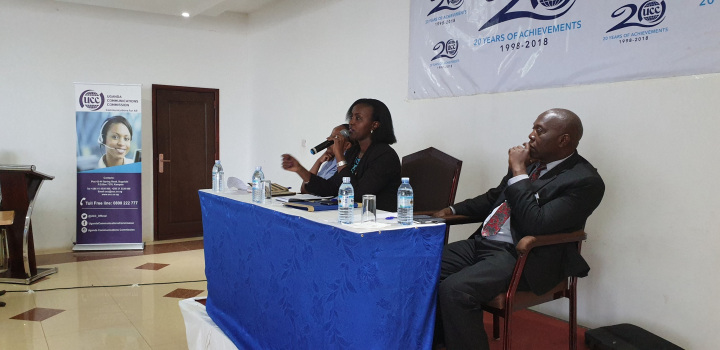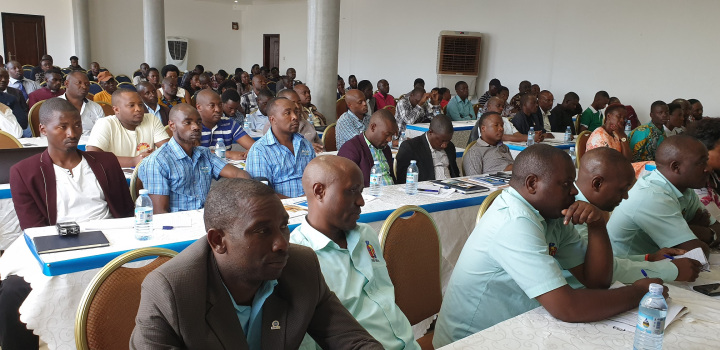
MBARARA – The Uganda Communications Commission (UCC) is conducting regional stakeholder’s forums engaging FM Broadcasters countrywide to raise awareness on the legal and regulatory aspects in the broadcasting sector.
The UCC says discussions aim to improve the information gaps that have led to concerns of noncompliance on statutory, regulatory and quality of service requirements in FM broadcasting.
The Commission adds that it is encouraging a practice where every once in a while, there are opportunities to review the operations in the communications sector and mainly take stoke of stakeholders roles, responsibilities and duties in providing for a robust communications sector in Uganda.
The first of five regional FM Broadcasters forum was conducted Tuesday, May 14, at Oxford Inn Mbarara were 115 media manager form various FM Radios in the region engaged the UCC and discussed pertinent and crucial regulatory issues that affect their operations, promotion of compliance standards and soliciting feedback.
The forum in Mbarara was graced and opened by Lt. Col. James Mwesigye the Mbarara district RDC and hosted by the Executive Director Godfrey Mutabazi who was represented by Ms. Julianne Mweheire the Director Industry Affairs and Content at the UCC.
Key among other issues discussed include, the legal and technical aspects about FM broadcasting, license and spectrum fees, broadcasting standards, consumer affairs and how to work with the UCC regional offices.

A key highlight during the discussion on broadcasting standards noted that the Press and Journalists Act and the Electronic Media Act enacted in 1995 and 1996 respectively are comparable to the codes of ethics in other jurisdictions like the United States, Britain and the international code of ethics for journalism.
During the merger of the broadcasting council and the UCC, this time tested principles on good journalism were incorporated in the Uganda Communications Act of 2013. Unfortunately, 90% of staff in broadcast houses did not know the codes of ethics on good journalism of the 70 media houses surveyed by the Commission last year.
Broadcasters had the opportunity to raise issues as part of the discussion, and the suspension of media managers by the Commission was on the menu.
Ms. Mweheire clarified that during an investigation, there is usually a need for people who seat in a position and have access to potentially alter the subject of the inquiry to set aside.
She explained that the reason the UCC directed media houses to have individual top managers step aside and not is to avoid these individuals to continue working in an area under investigation with the possibility to interfere or introduce bias into the inquiry.
This would, as a result, enable the UCC to come to evaluate and conduct an objective investigation.
The concern of police and RDC’s closing down radio stations was discussed, and Radio operators advised to use the known channels for redress.




